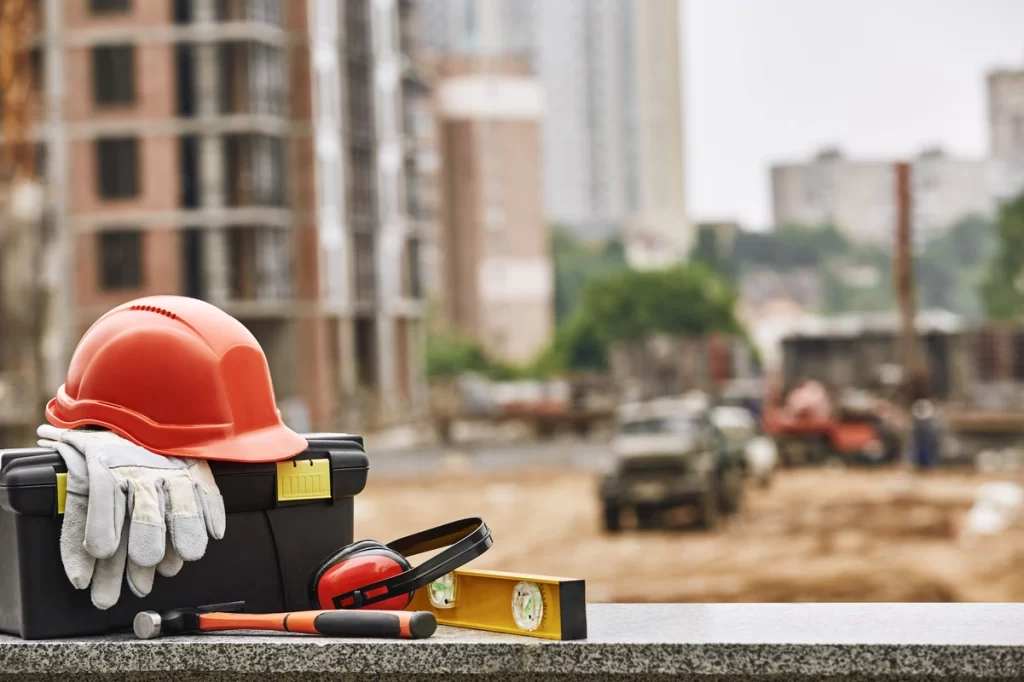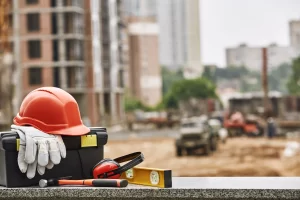Picking the right construction company can make or break a project. For small renovations or big developments how you choose your builder affects the end result. Many property owners and developers run into unexpected problems and letdowns because they overlook key factors when selecting their construction partners.
This article aims to highlight common mistakes to avoid when hiring a construction company. It examines the need to check credentials and licenses, the risks of choosing based on price alone, and the importance of reviewing references and previous projects. Also, it looks at why detailed written contracts matter and gives tips on good project management and planning. Understanding these key points will help readers make smart choices and ensure their construction projects succeed.
Not Checking Credentials and Licenses
A major error when hiring a construction company is not checking their credentials and licenses. This mistake can cause serious problems for the project and the property owner.
Check for proper licensing
Before you hire a construction company, make sure they have the right licenses to work in the UK. Different jobs need different licenses. For example Gas Safe registered engineers can do gas installations. Electricians need to be part of an approved scheme, like NICEIC or ELECSA, to certify their work. Roofers might need to sign up with a group like the National Federation of Roofing Contractors (NFRC) to show they know what they’re doing.
Verify insurance coverage
Insurance plays a key role that you can’t ignore. The UK requires all contractors to have specific insurance types. These include Public Liability Insurance, which protects against accidents or damage to third parties during work. Contractors who employ workers must have Employers’ Liability Insurance. Also, Professional Indemnity Insurance shields against mistakes or oversights in their work that might cause financial loss or harm to the client. You should ask to see proof of these insurance policies and check that the coverage levels match the project’s size.
Confirm industry certifications
Industry certifications play a key role in picking a construction company. The Construction Skills Certification Scheme (CSCS) card shows that a worker has the skills and qualifications to work on a construction site. Other certifications might be needed based on the type of work. Checking these certifications helps make sure the construction company can finish the project up to standard.
Picking Based on Price
In construction, people often want to choose the lowest bidder. But this choice can cause big problems and hidden costs. Picking the cheapest offer might seem smart for your wallet at first. Yet, it can lead to poor quality work longer project times, and possible legal issues.
Dangers of low-ball offers
Low-ball offers often show that a contractor might skimp on materials, workers, or both to stay within budget limits. This trade-off in quality can cause structural problems, safety risks, and the need to fix costly issues down the road. Also, contractors who give the cheapest bids might not have the tools or know-how to run the project well, which can slow things down and throw off project schedules.
Importance of value over cost
Focusing on value instead of initial cost plays a key role in the long-term success of a construction project. The upfront price might be lower, but choosing the cheapest contractor can lead to hidden costs that pop up during the building process. These extra expenses may come from changes in orders, holdups, or unexpected problems that the lowest bidder didn’t include in their offer. As a result, owners might face more costs that cancel out any expected savings and throw off project timelines.
Looking at quality and know-how
When picking a construction company, think about more than just the price. Experienced builders with a good history might cost more, but they offer know-how, dependability, and a record of finishing jobs well. Choosing a well-known contractor can lead to a smoother build better results, and happier clients. When making your choice, focus on checking the contractor’s skills, background, and dedication to quality work.
Not Looking at References and Previous Projects
Why client feedback matters
Customer reviews have a big impact on choosing a construction firm. They give useful info about work quality how well the company communicates, and how efficient they are. In fact, 88% of people trust online reviews as much as tips from friends. These reviews act as real-life success stories showing potential customers that others have had good experiences with the company’s work. They prove the company knows what it’s doing and make clients feel more confident they’re making a good choice.
Site visits to completed projects
Site visits play a crucial role in lowering risk and keeping costs down for installers, manufacturers, and end clients. They offer an outside perspective on the work and its progress. These checks make sure the framing goes up as designed, which helps prevent long-term building problems. New studies reveal that mistakes in construction cost between £10 billion and £25 billion surpassing the industry’s average profit margin.
Looking at communication and professionalism
Clear communication plays a vital role in selecting the right construction firm. Clients should pose many questions about the agreement and services it covers when they get a quote. Fast and useful answers to queries or worries show professionalism. Ongoing talks keep the client informed about any possible problems or setbacks in the project. It’s also helpful to ask about the company’s main contractor or project management know-how. An in-house team with experience can lead to faster query handling and help create a better bond between client and team during the project.
Not Getting a Detailed Written Contract
A solid written contract is key to the success of any building project. It acts as a legal agreement that spells out the duties, hopes, and rights of everyone involved. Not getting such a contract can cause mix-ups, fights, and possible money losses.
Main parts of a full contract
A complete building contract should have several must-have parts. It needs to name all people involved giving their names, addresses, and jobs in the project. The contract should also have a full description of the work to be done, including details for materials, quality rules, and project schedules. Also, it should lay out the total cost of the project and any plans for changes in material prices or supply.
Payment terms and schedules
The payment terms and schedule stand out as a key part of any construction contract. This section needs to spell out when people should pay how much they should pay, and what happens if they pay late or not at all. It’s crucial to set up a payment plan that matches project milestones or specific dates. The contract should also list which payment methods work and what fines apply for late payments.
Handling of change orders and disputes
Building projects often need tweaks or changes as they move forward. A well-written contract should include rules to handle change orders spelling out how to ask for, okay, and record changes to the original work plan. It should also talk about how these changes will affect the project schedule and price. What’s more, the contract should lay out steps to solve disagreements, like mediation or arbitration, to stay away from pricey and slow court battles.
Conclusion
Picking the right construction company has a big influence on how well any building project goes. To protect their investments, property owners should avoid common mistakes. These include not checking credentials choosing based on price, skipping reference checks, and forgetting about a detailed contract. These steps are key to get quality work, finish on time, and have a smooth building process.
To wrap up taking the time to pick a construction partner and do your homework can save you headaches, cash, and time down the road. When you check out potential contractors and set clear expectations with proper paperwork, you’re setting yourself up for a project that’s more likely to succeed. This way, you’re not just looking out for your own interests, but you’re also building a good working relationship with the construction company you choose.












